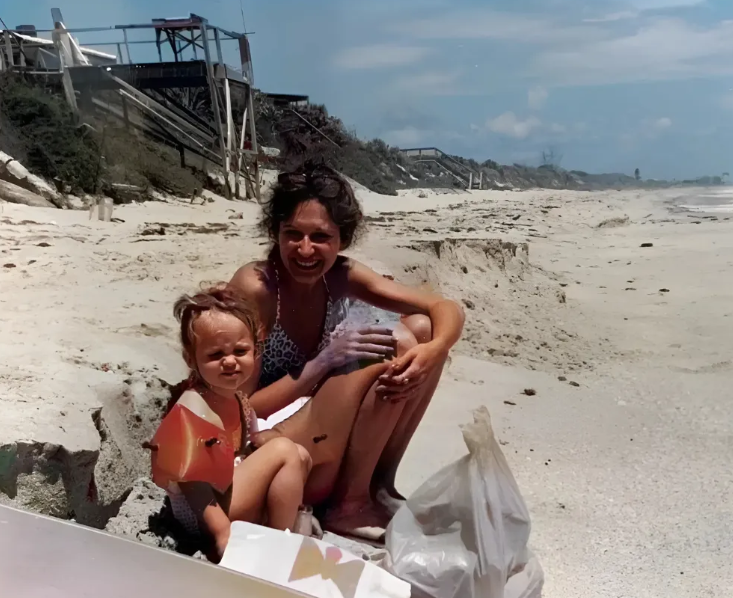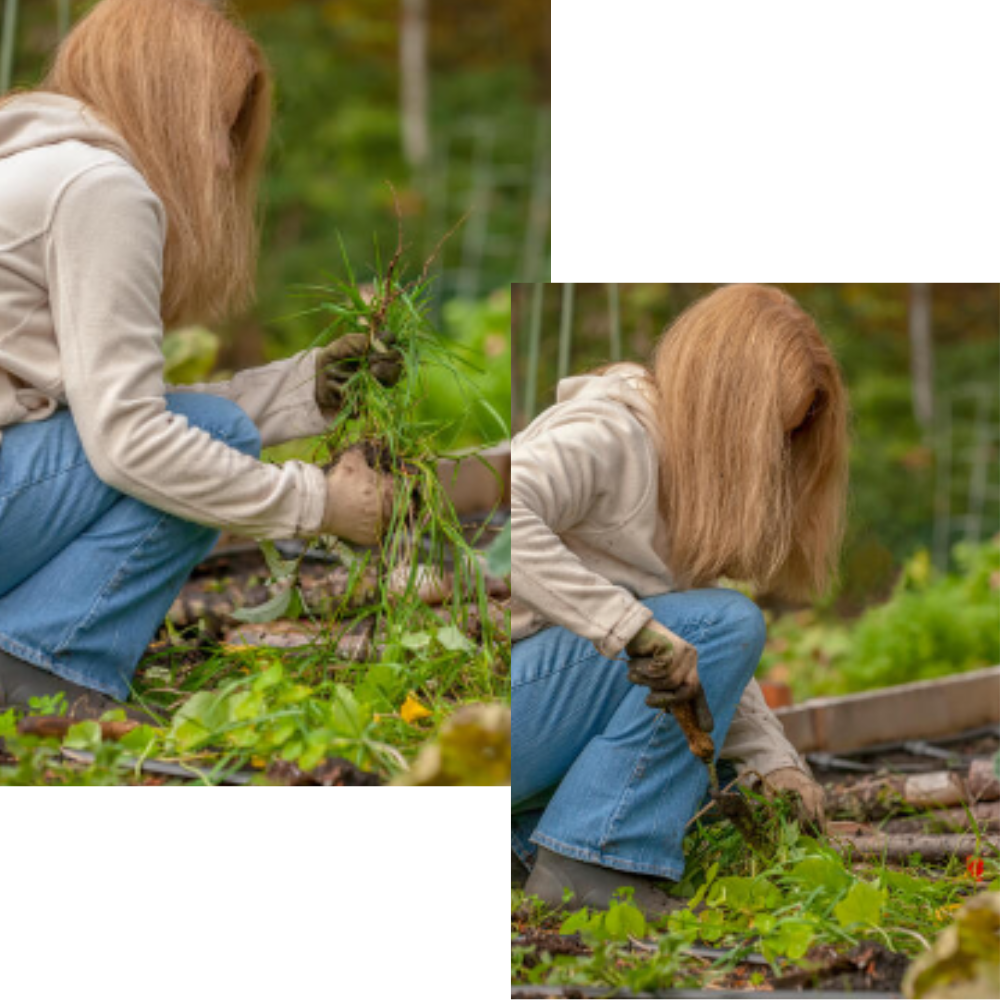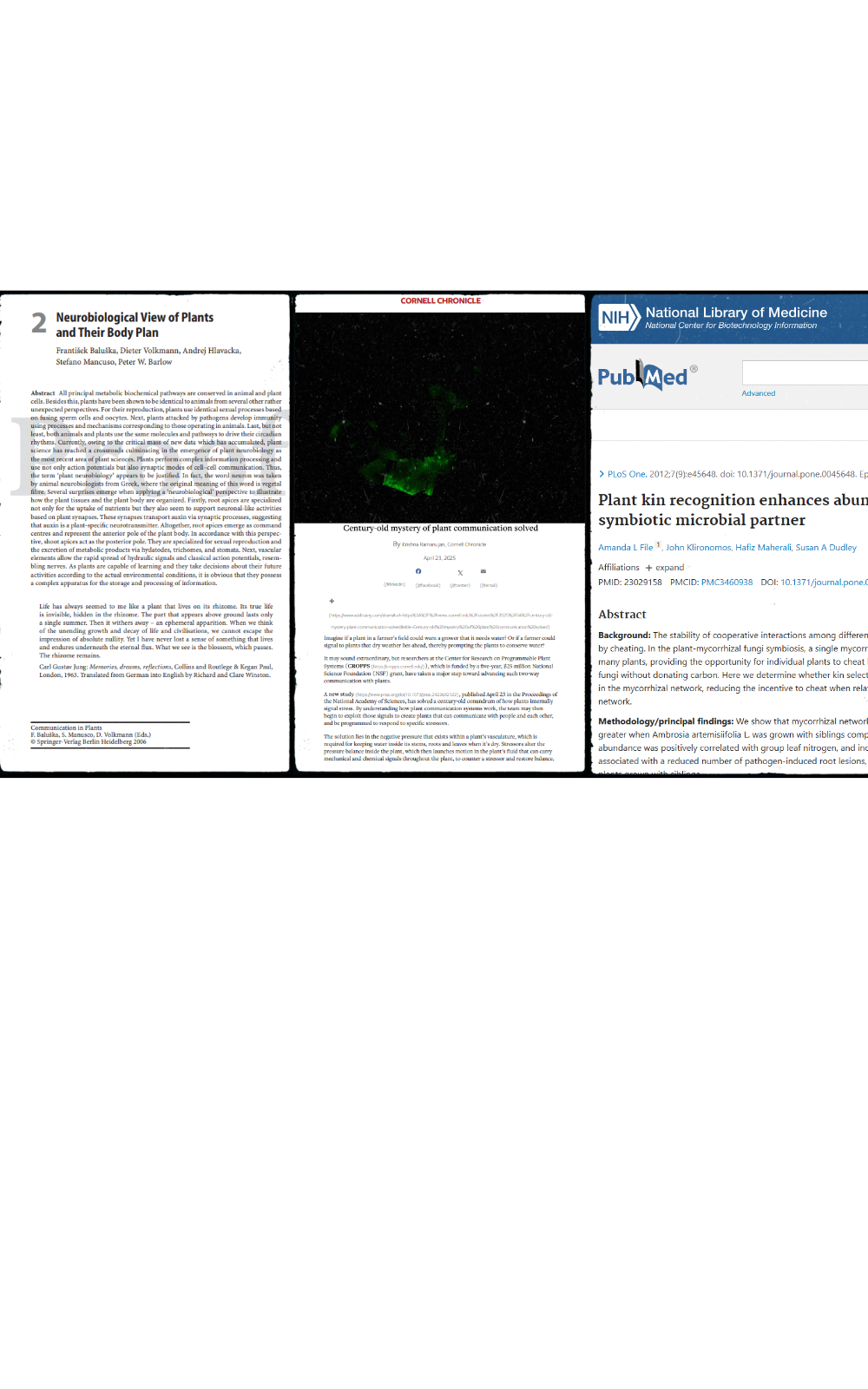On Grief and Growing Things
Four years after losing her mother, writer Christy Chilton discovers she's morphing into the woman she once judged—and it's the most unexpected transformation of her life. From soil meditation to palm tree whispers, grief becomes grace.
November 21st, 2021 — the date sits in my calendar like a pressed flower, delicate yet permanent.
Nearly four years have passed since my mother left us, a span that somehow feels both infinite and impossibly brief. The math surprised me today when I sat down to write this; I had to count twice, even out loud, just to be sure. And when it finally settled in — that nearly four years had gone by — I felt a small shift. A tear, yes. But more than anything else, an unexpected sense of grace.
Death has always been my conversational blind spot — the subject I navigate around with the practiced ease of someone avoiding construction on a familiar route.
There’s something about mortality that feels too vast, too final — especially for someone who loves life as fiercely as I do. I truly prefer the comfort of blind ignorance when it comes to it. I’ve always found that anyone talking or reflecting on death feels heavy, pessimistic — honestly, for me, it’s a subject I prefer to gloss over rather than dwell on. I’m not sure that will ever change, as it’s a personal choice and preference at this point. Not because it makes sense, not out of blind naivete, and not because I’m oblivious to reality, but because I love this world and those in it too much to carry the weight of its ending. It’s a kind of beautiful delusion — born from loving so deeply that accepting life’s impermanence feels like a quiet betrayal.
But grief, I’ve learned, has its own intelligence. It doesn’t follow neat trajectories; instead, it weaves itself through the ordinary moments of daily life in ways both startling and strangely comforting. These days, I find myself mirroring my mother in the most unexpected ways — always catching me off guard.
Christy Chilton and her mother, Nancy Kelley, in Florida, circa early 90’s
Each moment offers a small flash of recognition, helping me see her with sharper focus, understand her more clearly, and appreciate who she was in ways I never fully managed when she was here. It’s like discovering hidden tracks on an album you thought you knew by heart.
Consider the act of cleaning. My mother approached housework with a meditative precision, treating baseboards and grout lines with the same delicate care one might give to a fine watercolor. I used to find it charmingly excessive — a devotion to details most people overlook. But now, when anxiety hangs heavy like humidity before a storm, I reach for cleaning supplies with something close to reverence. There’s a quiet satisfaction in restoring order to the unnoticed corners of life — a rhythm both familiar and quietly healing.
It’s like the focused solitude of a woodworker or carpenter, absorbed in the meticulous craft of polishing a carving — each stroke deliberate, every detail honored. I have a newfound respect for this form of care that lives in stillness and precision, devoid of ego. And I see it in myself as well as others.
Then there’s the garden — my mother’s outdoor studio, where she spent countless hours in what I once considered purposeless communion with plants. She wasn’t cultivating anything particularly practical or Pinterest-worthy; she simply loved the act of tending — the daily negotiation between human intention and natural will. I thought it looked hot and tedious. I was spectacularly wrong.
“These days, I’m outside most mornings, hands deep in soil that smells like rain and possibility.”
These days, I’m outside most mornings, hands deep in soil that smells like rain and possibility. I dig into the earth, pulling out invasive weeds, driven by instinct and the simple goal of caring for my surroundings.
Last week, I found myself locked in a fierce bear hug — arms and legs wrapped tight around a young, battered palm, raw and fragile in the hurricane’s aftermath. I was straddling the eight-foot pygmy palm tree, holding it upright with my legs while pulling the stake straps taut and tying knots like lifelines.
“Naturally, I whispered words of encouragement to that battered baby palm: “You’re going to make it. You’ll grow strong and tall for years to come.”
Naturally, I whispered words of encouragement to that battered baby palm: “You’re going to make it. You’ll grow strong and tall for years to come.” It felt like holding a fragile life I couldn’t let slip away.
For most people who move to Florida, palm trees are something to pause for — admired for their beauty and flamboyance. They’re icons of tropical escape, postcard-perfect scenery.
But for me, raised here in this tropical terrain, palms are predominately the only trees I’ve ever known. I’ve seen them in every shape, size, color, and condition. They’re familiar — more like old friends than something that stops you in awe or wonder. Not a spectacle, but a familiar face in the landscape of my life. Every day, I water that young palm, hoping to see it re-root itself, steady and strong.
Christy Chilton
Recent botanical research suggests my conversations with palm trees aren’t as fanciful as they seem. Scientists have found that plants communicate — releasing chemical signals, responding to their environment, even showing behaviors that hint at learning. And hugging a tree, cliché as it sounds, has been shown to lower cortisol levels and boost immune function, likely thanks to phytoncides — subtle, airborne compounds trees release like whispered secrets. Some studies even suggest physical contact with trees triggers the release of oxytocin, the hormone associated with bonding and well-being.
Perhaps my talks with flora are part of an ancient dialogue we’ve only recently begun to understand — a network of raw, unfiltered connection that predates language and evolution.
At this stage of life, I’ve joined a club no one volunteers for: the roughly one-quarter of Americans my age who have already lost a parent. It’s a statistic that carries weight beyond numbers, shaping perspective in ways both subtle and profound.
These moments of unexpected maternal mimicry — the cleaning rituals, the garden meditations, the tender encouragement offered to struggling plants — once so far from my own character, feel like more than genetic inevitability or psychological echo. They bring me to a deeper knowing, an unspoken, indescribable understanding and connection with my mother, my Irish ancestry, and ultimately, with myself.
There’s something unmistakably Irish in these small, instinctive gestures — the way I instinctively grasp an invasive plant and twist it leftward to uproot it with effortless ease. No one ever taught me how to do that; it’s knowledge etched deep within me. This quiet, innate wisdom can only come from the legacy of my mother’s pure Irish roots — something she embraced both consciously and with pride. The Kelley legacy pulses softly through my bloodline, revealing itself in habits and rhythms passed down like a whispered inheritance.
The Kelley surname, stemming from Ó Ceallaigh, means “bright-headed,” “church-dwelling,” and “brave warrior.” What a combination. You wouldn’t believe how perfectly it fits the maternal side of my family.
“The Kelley Family Crest, with the Latin Motto being “Turris fortis mihi Deus” or “God is a strong tower for me.”
The way I connect with my mother now is obviously different — I dare say it’s perhaps a deeper, more spiritual reverberation; less superficial, more empathetic, and filled with far more respect than ever before since she’s been gone. I’m coming to appreciate and understand who she was and what she stood for on a more profound and meaningful level.
This connection is not sad or somber, nor is it the sentimental kind of grief or remembrance we often expect. Instead, it’s something deeper, more beautiful — a feeling that aligns with my spirit and brings me a true sense of wholeness, understanding, and respect.
If there was one thing about my mother that now feels paradoxical, it is this: for most of my life, while she was still here, I judged her harshly for one defining quality she held. Yet now, only in retrospect, do I find myself holding that very same quality in the utmost respect and admiration — her simplicity, purity, ease, and grace.
I have always seen myself as strong, tenacious, proud of my grit, my brazen spirit, my logic, and analytical mind. But there is something profoundly powerful in simplicity — in the quiet of the mind and the act of just connecting. That was how my mother lived her life. I simply didn’t understand it then — I judged, scoffed, and ignorantly assumed she didn’t know any better than to live in such a simplistic way. I’ve always abhorred the idea of anything “simple” on so many levels — personality, passion, intelligence, life, experiences.
But now, only now, am I beginning to discover the profound beauty and grace found in simplicity.
And so, with every glimpse of myself becoming more like her — more carefree, less superficial, hands dirty in the soil, sweat from the harsh yet beautiful Florida sun and tropical climate — I discover something far more essential than my research, my words, or relentless need to prove myself, even to myself.
I allow myself to be soft and feminine, like the flowers — in the muscle memory of care, in the quiet understanding that attention itself is a form of love, and in the recognition that sometimes the most meaningful connections happen when our hands are dirty and our hearts are fully present.
This realization arrives with its own particular beauty — unexpected, earned, and somehow exactly right.
-Christy Chilton











